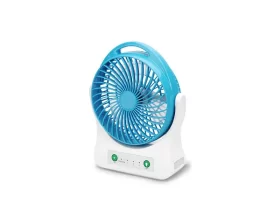After substance abuse treatment, it can be difficult to maintain sobriety. However, there are things that you can do to increase your chances of success. Keep reading to learn more about how to maintain sobriety after substance abuse treatment.
Inpatient and Outpatient Treatment Programs
There are many different inpatient and outpatient treatment programs for those with a substance use disorder. The most important factor in determining the best treatment program for a particular individual is the severity of their substance abuse. An example of an inpatient program is The Hope House, a luxury personalized drug and alcohol rehab facility based in Scottsdale, Arizona.
The Hope House offers opioid treatment programs that consist of a detox program, an inpatient treatment program, an intensive outpatient treatment program, and support groups. An inpatient program provides round-the-clock care and supervision, as well as medication-assisted therapy. Outpatient opioid treatment programs do not require that participants live at the facility, but they do require regular attendance for counseling and therapy sessions.
Extracurriculars With Support Group
A support group can be a group of friends and family who have your best interest at heart and understand the importance of your sobriety. A great method for maintaining sobriety after substance abuse treatment is participating in hobbies or extracurriculars with your support group. For example, if you are located in Miami, you and your support group could explore top attractions, like the Miami Zoo, and make use of some Miami Zoo coupons. Going to the zoo is a great opportunity to get the whole family outside for some fun animal encounters.
Hobbies can also provide a healthy outlet for your energy and creativity, and they can help you connect with like-minded people. Whether you’re into hiking, cooking, painting, or playing music, there’s a hobby out there for you.
Exercise and Eating Healthy
Exercising and eating healthy are great ways to maintain sobriety. Most people know that exercise is important for maintaining overall health, but many people don’t realize how beneficial exercise can be for mental health. Exercise helps to improve mood, increase energy levels, and reduce stress. Exercise can also help you manage mood disorders such as depression and anxiety, as it releases endorphins, which are hormones that have mood-boosting effects. Exercise is also a great way to manage stress because it allows you to take a break from your stressful thoughts.
Food is fuel for the body, and if you’re not fueling your body with the right things, then you’re going to have a hard time feeling your best. Eating healthy foods is great not only for your physical health but for your mental health as well. When you eat healthily, you’re providing your body with the nutrients it needs to function properly. So, what should you be eating to stay healthy? Here are some tips:
- Eat plenty of fruits and vegetables.
- Avoid processed foods.
- Include healthy fats and proteins in your diet.
- Drink plenty of water.
- Avoid sugary drinks.
- Make sure you’re getting enough fiber.
- Avoid caffeine.
- Eat regularly throughout the day.
- Make sure your diet is balanced and varied.
Seek Treatment for Co-Occurring Disorders
Seeking treatment for a dual diagnosis can also help you maintain your sobriety. Treatment for any dual diagnosis can help improve your overall well-being and mental health. The first step in treatment is to identify the co-occurring disorders. This can be done with a psychiatric evaluation. Once the disorders are identified, a treatment plan can be created. Medication, such as antidepressants, antipsychotics, and mood stabilizers, may be prescribed to help treat the co-occurring disorders. Therapy is also an important part of treatment for co-occurring disorders. This can include cognitive behavioral therapy, family therapy, and dialectical behavior therapy. If you are struggling with mental health conditions, it is important to seek treatment from a qualified professional.














